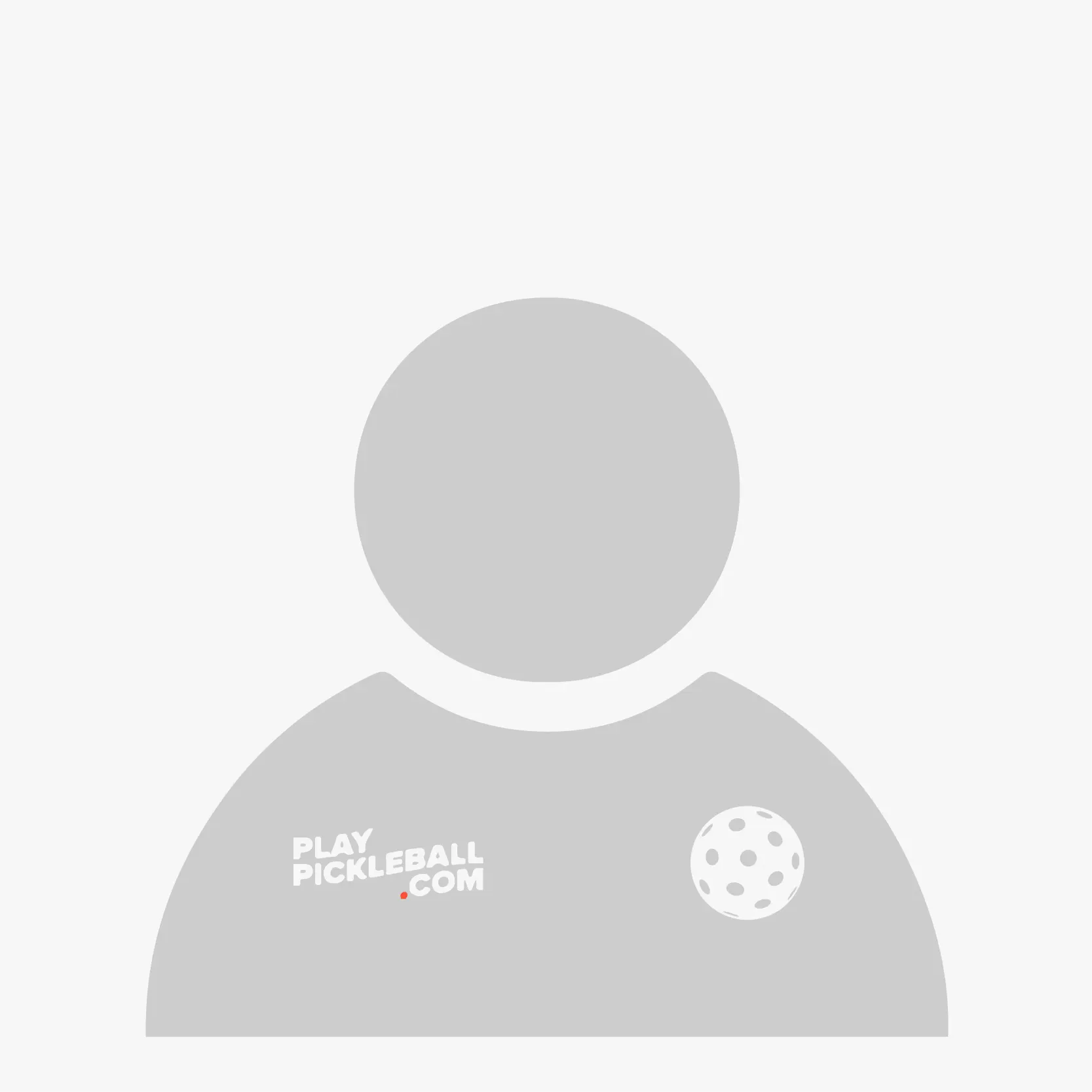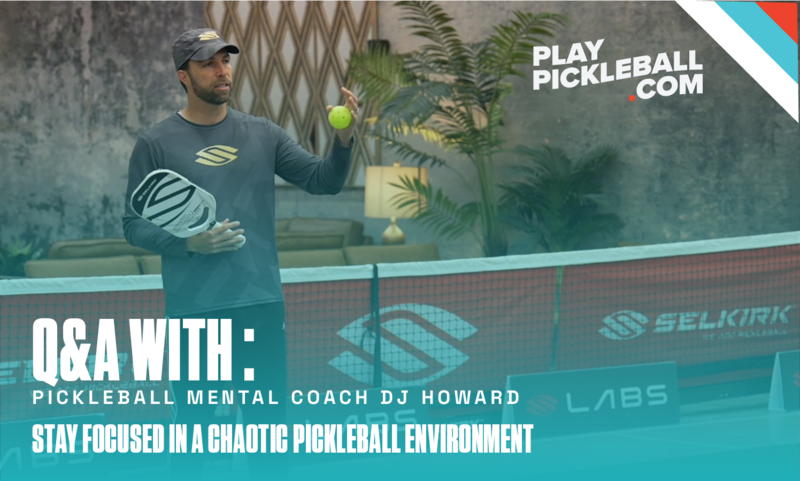Pickleball mental game coach DJ Howard answers your questions about mental blocks while playing, mental awareness, and how you can improve your pickleball game.
Question:
I get easily distracted by noisy and/or chaotic environments such as playing indoors or at busy tournaments. How can I be more focused?
DJ Howard:
First of all, it's a very positive thing to have identified what some of your distractions may be. They are predominantly external rather than internal. You don't want external distractions to grab and hold your attention, because they will negatively affect your ability to perform. It seems you currently recognize that focusing on those things is not helpful to optimal performance, but you're not sure how to avoid being adversely affected.
You may have noticed it's not enough for someone to simply say: "Don't think about that. Just ignore x, y, or z distraction." In order to concentrate and perform well, you must learn to replace distracting thoughts with something else that is more relevant to the next task, play, or shot. The goal is to focus on a specific mental cue that can help you perform a particular task efficiently and effectively. By learning to do this, you'll be better able to discard the irrelevant thoughts that enter your brain because you are actively replacing them with relevant thoughts. But how?
One simple method for doing this involves using three Rs.
- The first R is to recognize when a particular distraction has occurred. You may identify the specific distraction and seek to set it aside, knowing it is not helpful if you dwell on it.
- The second R is to regroup with a statement to get you back on track. For example, you might say to yourself, "Stop! This thought is not beneficial right now," or, "This is not important at the moment."
- This leads to the third R, which is to refocus on the very next play. This is where it can be highly important to have some specific performance cues to think about. You can replace your previous thoughts with something like, "See the holes of the ball," or, "Flex my knees," or, "Find their backhand." It could be anything else that is immediately relevant to the task at hand. The goal is to focus your energy on task-relevant cues that will help you perform your best.
One very meaningful exercise is this: First, make a list of what you recognize as your most common distractions. Second, write down a brief regroup statement next to each one. Finally, record some refocus words or statements with relevant cues you may use to replace those distractions.
With some regular practice, you'll find your ability to concentrate amidst distractions will drastically improve, even in the middle of noisy and/or chaotic situations.
- DJ Howard

